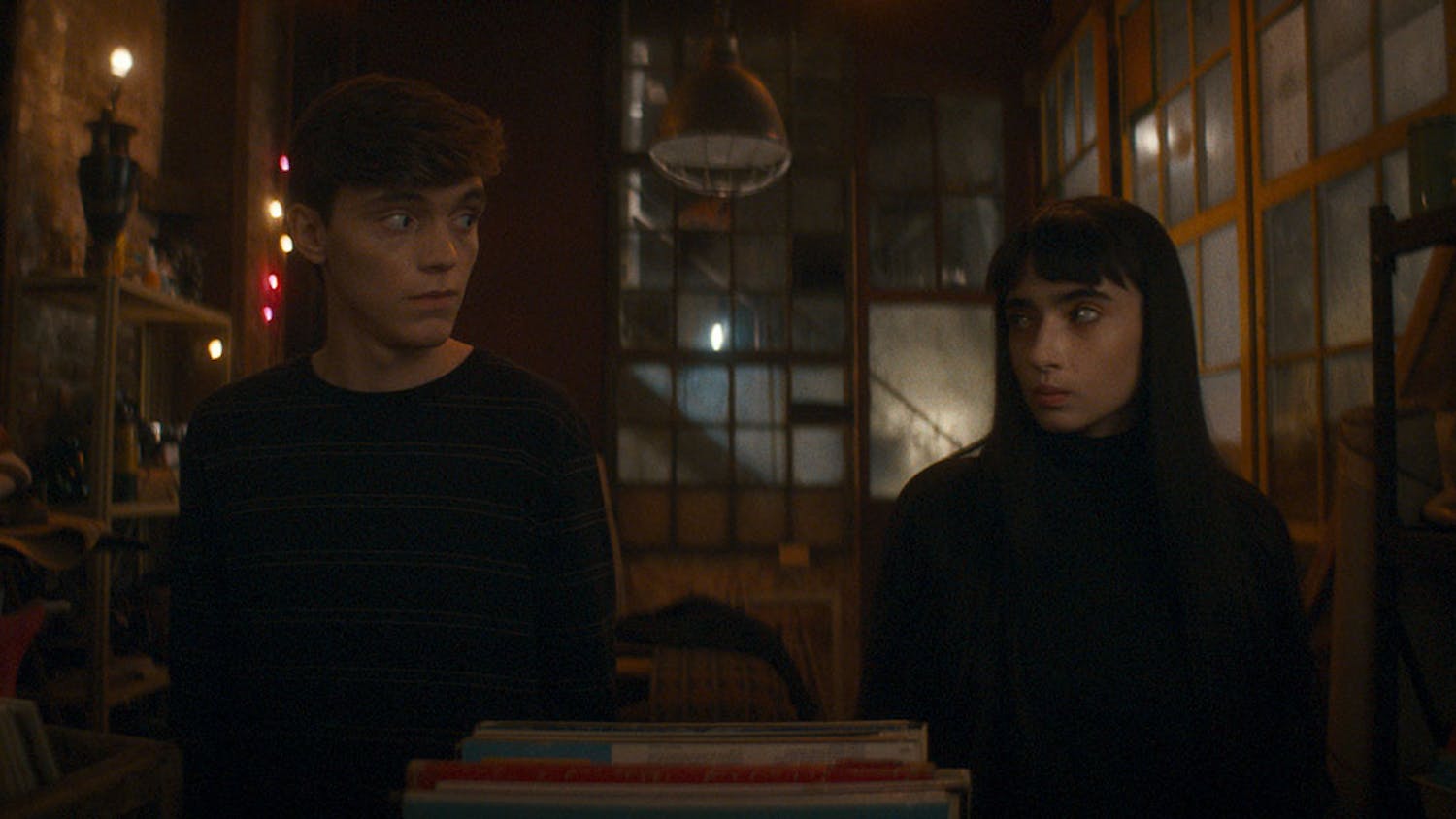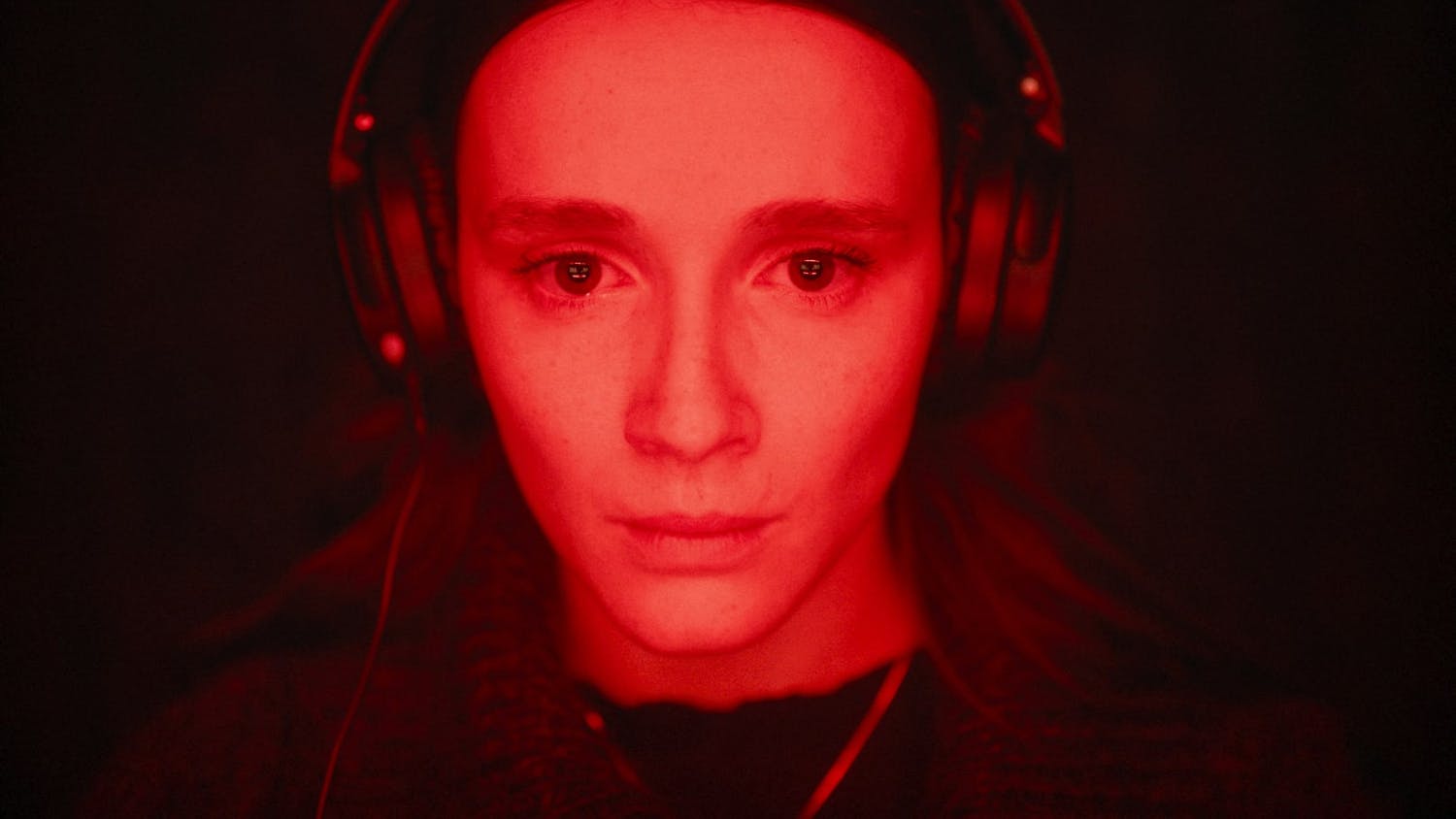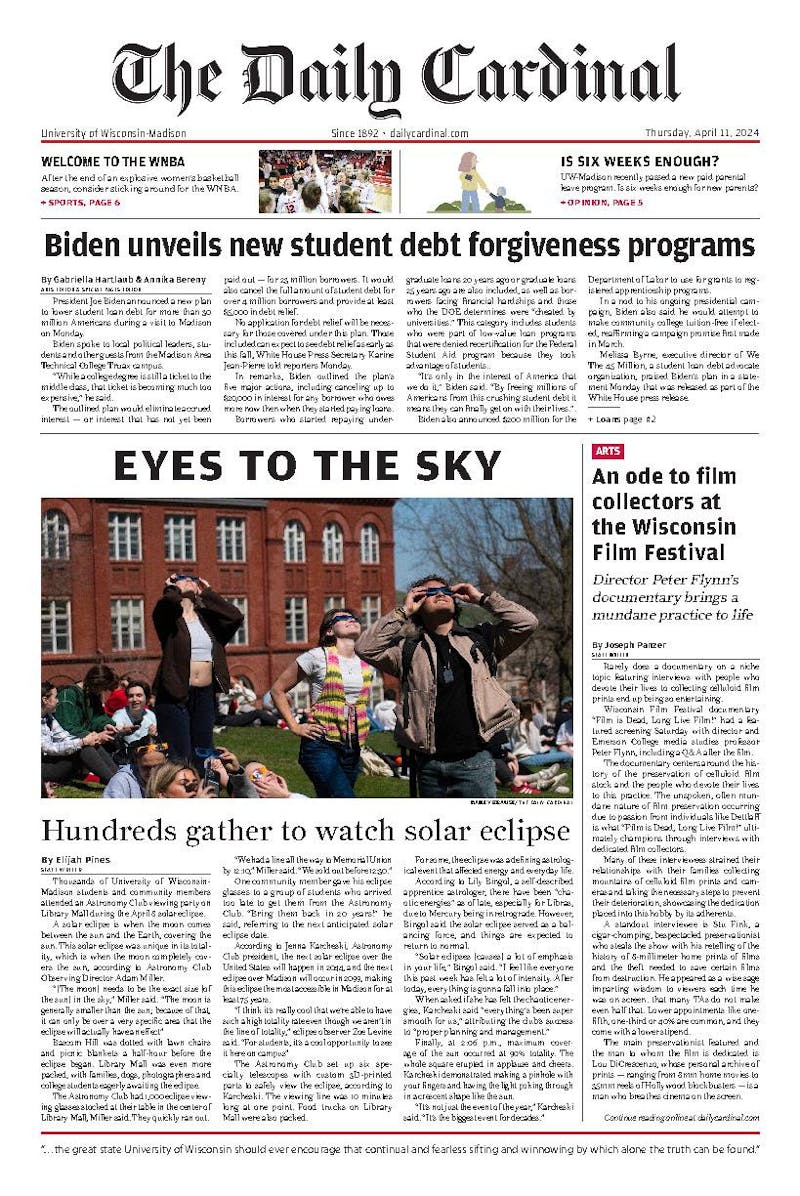“Falsettos” tells the story of an unconventional family doing its best to pass as normal as they grapple with the everyday complexities that come with being a family. Stage Q’s hilarious production just finished its two-week run at the Bartell Theater.
The musical first made its premiere on Broadway in 1992 and was recently revived in 2016. The book is a masterpiece within itself, written by James Lapine and William Finn, with witty music and lyrics by Finn. The exhilarating, yet devastating musical takes place in 1979, New York City. The story revolves around a confused man named Marvin (Dennis Yadon), his ex-wife, Trina, (the spectacular Krystal Lonsdale) and 10-year-old son, Jason (HJ Farr) — not to mention his gay lover, Whizzer (Dan Pietrangelo). The audience is introduced to Whizzer fairly early in the musical, and it’s clear that the group seems to have reached an equilibrium. However, even in the early scenes, we see fractures and discrepancies in relationships. Marvin is possessive and critical of Whizzer, displeased by his younger partner’s lack of enthusiasm for monogamy. Dennis Yadon excellently portrays this irritation — almost to a fault. Though Marvin and Whizzer thrive in chaos, and most of their attraction is product of the frequent heated arguments they undergo, there wasn’t much chemistry between the two actors until the second act.
Marvin, along with the other main characters, point fingers at one another, trying to determine the source of their dissatisfaction with most of them attempting to blame someone else for their own insecurities. Marvin urges Trina to go see his psychiatrist, Mendel (Daniel Jajewski) who almost instantaneously falls for Trina. Marvin and Trina then urge their son, Jason, to go see Mendel as well, fearing that he spends too much of his time isolated from the outside world.
There is no space between each song; most of them feed right into the next. This reiterates the franticness of the characters as they ricochet through their intricate lives, but the flow of the musical makes it hard to highlight individual songs.
There is an exception to this, however; Krystal Lonsdale’s uproariously fuming “I’m Breaking Down,” is essentially a nervous collapse in song. The aria takes place early in the first act, but remains a deliriously funny, yet sad, high point of the entire show. With lines like, “My life is shitty and my kid seems like an idiot to me” and “the only thing that’s breaking up is my family, but me? I’m breaking down!”
The set contained large boxes, manipulated by the actors, that resembled a child’s building blocks against a Manhattan skyline. Though the set was simple, contrasting the complexity of the plot, it was a unique way to portray the characters continuously arranging and rearranging their lives for themselves and their friends.
Another distinctive choice by director Michael Bruno was to keep the principal characters on on stage for most of the show, even when they weren’t performing. Repeatedly, they would sit on the “building blocks” and observe the lives of other characters, establishing a kind of omniscience that resembles the knowledge we all acquire in everyday life through things like gossip and social media.
The second act is where the show picks up. The first act was enjoyable to watch, but most of the relationships weren’t established clearly enough, making it slightly difficult to determine the opinions individual characters had on one another. The pacing feels slow, which causes lulls that are hard to crawl out of. This is remedied in act two with higher stakes. Trina and Mendel have married, Marvin and Whizzer have broken up, the whole gang goes to Jason’s ball game to watch “Jewish boys who cannot play baseball play baseball” and all seems kind of well — at least in the perpetually altering lives of these complex characters.
The tone of the show changes dramatically when we see Whizzer collapse from a mysterious disease that, while never stated, is presumed to be AIDS. This is when Yadon and Pietrangelo produce immense emotion, and you start to really feel for their characters.
However, my mind couldn’t help but draw comparisons to the later, more prominent musical “Rent.” Both shows are almost entirely sung through and both are ingenious, but Jonathan Larson’s “Rent” has a certain flare that “Falsettos” lacks. In “Rent,” the characters are fully fleshed out in a way that Finn’s “Falsettos” doesn’t quite match. The idea of finding the “normal” in an ultimately abnormal family, however, is something that has become increasingly prevalent in the last two decades. Today, it is widely accepted that American families come in all shapes and sizes. “Falsettos” was eerily perceptive in its presentation of a family that was irregular and unorthodox before that became the norm.






